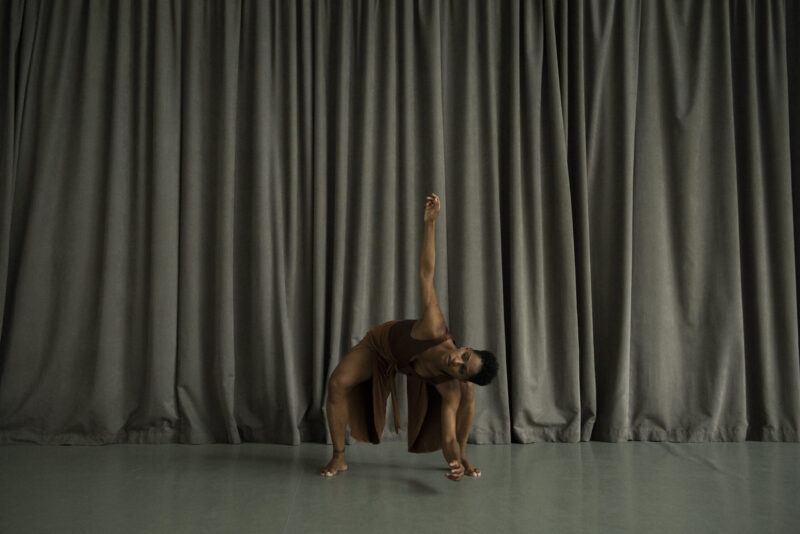
To mark the 30th anniversary of Irish Modern Dance Theatre, the company is presenting Evolutions, a performance based on the idea that no member of the same species is alike. Evolutions is choreographed by John Scott, a Dublin born choreographer, performer, and founder and artistic director of Irish Modern Dance Theatre. The University Times spoke with Scott about the production.
Although the title of the performance is explicitly evocative of Darwin’s theory, the scientist and the science is in fact the last thing Scott is interested in. “There’s something about the theory of evolution as Darwin presented it, and as scientists approach it, that seems too scientific, unromantic, unspiritual … it’s just dry! It’s dry and horrible”, says Scott, “and I’m very romantic”.
For Scott, the concept of evolution opens up a variety of artistic and emotional possibilities. “I love the concept of mixing”, the choreographer explains. “We were looking at these forms like mushrooms, and sponges, and algae, and simple single-cell creatures… and I love to think that maybe we are genetically connected to a mushroom, or to a sponge.”
Another factor that has influenced Scott’s work is the long-lasting pandemic that has changed the way people think about “the body in space and the body also with people”. Scott reflects on “how we don’t touch anybody anymore, we don’t kiss anybody anymore. We’ve lost something, and we had to suppress and repress things that were so natural to us.”
Evolutions explores the ideas of bloodlines, migration, assimilation, and adaptation in an ever-evolving landscape. The show features seven dancers coming from different countries and stylistic backgrounds, and acts as a camera or a receptor of what is happening in the world. While the creators were not trying to make a piece about the pandemic, or about the world itself, some of the world has come into it. Scott recalls Hamlet’s advice to the players to “hold, as ’twere, the mirror up to nature” – in a way, Evolutions is holding that mirror.
In his work, Scott loves “to make things where people partner and where people touch, and lift, and fall on each other.” He often finds that “duets, trios [are] easier to make than a solo”, and adds that “making a solo, it’s the first thing, it’s the important thing. But there’s something that I find difficult about it, because there’s something in a solo that implies being special.”
The circle is a big motif of Scott’s work. “I’ve been fascinated [by it], spell-bound almost,” said Scott. The circle “means continuation, it means life. It’s also non-hierarchical. If everyone is in a circle, then everyone is equal.”
“And we also have used patterns in the work relating to bird-flight,” said Scott. “In dance there’s something where we can almost fly, and we can defy gravity, and we can do things like other species, like birds. … The way we can drop to the floor quickly. There’s an adaptability in a dancer”.
The choreographer draws inspiration from both the dancers and the space. “My choreography is often defined by the connection, the spatial connection, the physical connection of one dancer to the other. … When I’m looking at the dancers, the space tells me a lot about where they need to go.”
“The work becomes who the people who make it are,” he continues. Paying attention to how the performers naturally move, Scott does not merely give them a set of movements to repeat. “I don’t come in with a notebook and say: ‘Okay, so…’”, he jokes.
The choreographer hopes that having come out of the theatre after the show, the audiences will “feel that there’s joy and there’s still something to celebrate” despite everything that is going on in the world. “I definitely want them to laugh,” emphasises Scott. “But I also want them… to be touched by something. I feel things when the dancers drop and they hit the floor. And they splat. And then they get up again. They always get up again. And they keep going.”
Evolutions runs at the Project Arts Centre October 27th to 30th. Tickets €14/16.






